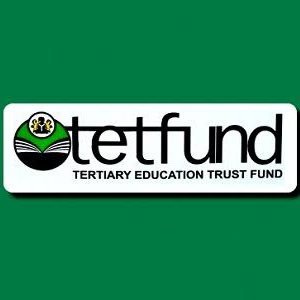
Chidimma Uchegbu
The Tertiary Education Trust Fund (TETFund) has warned that institutions that fail to meet performance benchmarks or mismanage funds risk being delisted from its support programs.
Executive Secretary of TETFund, Arch. Sonny Echono, stated this at a one-day strategic engagement with heads of institutions, bursars, and heads of procurement of the Fund’s beneficiary institutions in Abuja on Monday.
He said the policy is not meant to punish, but rather to safeguard the credibility and impact of TETFund interventions.
The executive secretary said: “Let me be clear, institutions that consistently fail to access, utilize or retire funds appropriately, or that fall short of enrollment and academic performance thresholds, risk being delisted as TETFund beneficiary institutions.”
He also said the Fund intends to ensure that its resources are directed toward institutions committed to high standards of governance, transparency, and accountability.
According to him, the strategic engagement aims to address recurring challenges in Nigeria’s tertiary education sector, improve project execution, and enhance the quality of education.
A key focus, he said, is the Academic Staff Training and Development (AST&D) intervention. Due to rising costs and incidents of scholars absconding, the foreign component of the TETFund Scholarship for Academic Staff (TSAS) was suspended as of January 1, 2025. Emphasis will now shift to cost-effective, locally driven training.
Echono further said this year’s intervention budget prioritises consolidation, sustainability, and the completion of abandoned projects.
“This engagement is not merely a meeting but a strategic convergence. It is designed to address recurring issues of concern, streamline project implementation and enhance the overall quality of tertiary education delivery in our nation.
“We stand at a critical juncture, where collective action, transparent processes and responsible governance can determine the future trajectory of our higher education institutions. Let me begin by focusing on one of the central interventions supported by the Fund, the Academic Staff Training and Development (AST&D) intervention.
“As you all are aware, we made the difficult decision to suspend the foreign component of the TETFund Scholarship for Academic Staff (TSAS) due to the rising costs of training abroad, coupled with the increasing rates of scholar abscondment. Effective from January 1, 2025, we officially suspended this foreign scholarship component.
“This decision was not made lightly but it is in recognition of the need for a more sustainable and cost-effective approach to training and developing our academic staff. However, despite this suspension, we remain committed to enhancing the skills and capacity of our academic staff.
“The Fund continues to place emphasis on locally driven academic development programs and professional development, ensuring that our scholars can continue to receive top-tier training, albeit within a more manageable cost framework.
“Research remains a cornerstone of our developmental mission. In 2025, the Fund has significantly bolstered allocations to the National Research Fund, the Research and Innovation Fund, and the Research for Industry (Triple Helix) model. This engagement is a call to action. It is a platform to learn, reflect and commit to best practices in governance, project management and compliance.
“We must use this opportunity to engage in constructive dialogue, identify areas for improvement and renew our collective commitment to the transformation of Nigeria’s tertiary education system. As we move forward, let us approach today’s discussions with openness, collaboration, and a shared vision to elevate our institutions and the students we serve. Together, we can strengthen accountability, drive innovation, and ensure that the legacy of TETFund remains impactful, equitable and enduring for generations to come,” he added.
The representative of the Executive Secretary of the National Universities Commission (NUC), Professor Abdullahi Ribadu, Dr. Joshua Atah, conveyed greetings from the Commission and praised TETFund for organising the stakeholders’ engagement.
He emphasised the importance of such meetings for evaluating the implementation and impact of Trust Fund-supported projects in higher education institutions.
The NUC also appreciated the Fund’s vital role in improving infrastructure, research, staff development, and academic quality, stating that without its support, public education would struggle to survive. He acknowledged its adaptability, such as suspending international scholarships to reallocate resources more effectively.
He urged institutions to be more responsive and ensure that interventions are relevant and efficiently executed. Finally, he encouraged judicious and timely use of funds and called for open and constructive dialogue during the engagement.
“Therefore, this calls for greater responsiveness also on the part of the institutions. And this responsiveness also includes the areas of the design and implementation of these interventions to ensure that they remain relevant, impactful, and align with the future of education in Nigeria.
“It’s also important that we judiciously utilise these resources, and not just judicious utilisation but also in a timely manner so that we don’t lose the fund.”

Join the Conversation